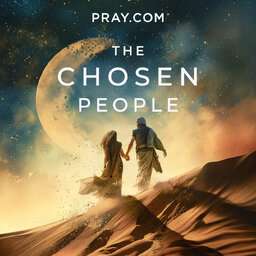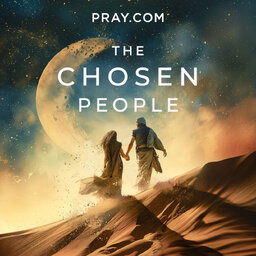Abram's Covenant
# 15 - Abram's Covenant - In this episode of The Chosen People with Yael Eckstein experience the profound moment when God makes an unbreakable covenant with Abram, promising descendants as numerous as the stars. This pivotal event marks the beginning of a divine relationship that shapes the destiny of nations and echoes through the ages.
Episode 15 of The Chosen People with Yael Eckstein is inspired by the Book of Genesis.
Sign up for The Chosen People devotionals at https://www.thechosenpeople.com/sign-up
For more information about Yael Eckstein and IFCJ visit https://www.ifcj.org/
Today's opening prayer is inspired by Deuteronomy 31:6, “... For it is the LORD your God who goes with you. He will not leave you or forsake you.”
Listen to some of the greatest Bible stories ever told and make prayer a priority in your life by downloading the Pray.com app.
Show Notes:
(03:17) Intro with Yael Eckstein
(05:24) Abram's Covenant - Cinematic Retelling
(21:48) Reflection with Yael Eckstein
 The Chosen People
The Chosen People


